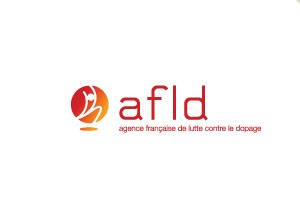French agency states sufficient time was given to beat the controls
 A senior member of the French anti-doping agency AFLD claimed today that Lance Armstrong was tipped off before doping controls during his career, thus giving him time to avoid a positive result.
A senior member of the French anti-doping agency AFLD claimed today that Lance Armstrong was tipped off before doping controls during his career, thus giving him time to avoid a positive result.
AFLD scientific advisor Michel Rieu told the newspaper Le Monde that the Texan was “warned before all the controls.
“The testers struggled to carry out spot checks without Lance Armstrong benefiting from a period of twenty minutes.
“In twenty minutes, a lot of manipulations are possible. He made infusions of saline to dilute the blood. He replaced his own urine by an artificial urine.
“EPO was administered in small doses…the substance was undetectable. Without information from the police or customs, it was impossible to fight this way.”
Armstrong had a surprise visit from an AFLD tester on March 17th 2009. He initially refused to allow the tester take a sample.
“I had never heard of labs or governments (the AFLD reports to the French government) doing drug testing and I had no idea who this guy was or whether he was telling the truth,” he said at the time.
“We asked the tester for evidence of his authority. We looked at his papers but they were far from clear or impressive and we still had significant questions about who he was or for whom he worked.
“I was there with (team manager) Johan Bruyneel and two other people. We told the tester we wanted to check with the UCI to confirm who he was and to make sure he wasn’t just some French guy with a backpack and some equipment to take my blood and urine.”
Armstrong went to take a shower before eventually providing a sample. Normal protocol dictates that the athlete must stay within sight at all times in order to prevent manipulation. The AFLD made a complaint about the issue, but the tester failed to mark the sample form correctly in terms of noting problems. The agency later dropped the matter.
Later that year, Armstrong’s-then Astana team was visited early in the morning by UCI testers. Again, normal procedure was not followed in that the tester accepted an invitation by team staff to have coffee with them, He delayed an hour before samples were taken, something which was faulted by WADA in its independent observer report.
Claims of outside assistance:
Rieu makes strong claims, saying that Armstrong had people within the sport who would help him.
“This support overflowed into the UCI (International Cycling Union) and the International Olympic Committee,” he said. “Lance Armstrong was surrounded by scientific physiologists, some of whom were discarded later. He had considerable resources to protect and implement logistics.
“There were rumours that he transferred blood from the United States in his private jet.”
He also alleged that former French president Nicolas Sarkozy pulled strings for the rider, who he regarded as a personal friend and from whom he later received a gift of a team bike.
“In October 2009, Armstrong was invited to lunch at the Elysée. Behind this visit, we know he wanted to get rid of the AFLD president Pierre Bordry, who resigned a year later.” Bordry had not been due to stand down for a further nine months, but said he could no longer do his job due to government cuts to the AFLD budget.
The AFLD claims are serious ones for the UCI and others. USADA has suggested its evidence includes proof that Armstrong had a positive test for EPO in the 2001 Tour de Suisse. This is disputed by the UCI, which denies it covered up test results.
Meanwhile the Wall Street Journal has said today that scientists had hoped to a new kind of blood test could be used on samples collected from Armstrong and others in 2009. The Barcelona-developed test looked for traces of plasticizers, which were contained in blood bags and which could have indicated transfusions.
The plan was to take a sample of blood from Armstrong and others, freeze it until such time as the test was perfected, then examine the sample. The UCI was approached about the plan but the anti-doping lab in Lausanne that it often uses refused to take part. It said the test did not follow the protocols laid out in the World Anti-doping Code.
Armstrong was yesterday given a lifetime ban from sport and was told that he would lose his seven Tour titles. He said on Thursday that he would not contest USADA’s anti-doping procedure against him, despite being aware that the refusal would lead to those sanctions.